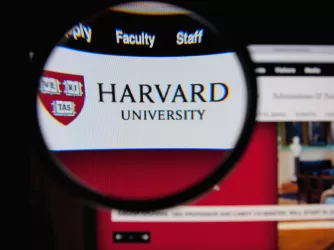Table of Contents
Stanford president and provost cheer free expression in open letter to incoming class

Stanford University President Richard Saller (left) and Provost Jennifer Martinez (right).
This is what FIRE loves to see.
In an open letter congratulating incoming first-year students on their acceptance to Stanford University, President Richard Saller and Provost Jennifer Martinez called on the next generation of scholars to embrace freedom of thought, inquiry, and expression. The pair also explained to students that Stanford expects them to show “respect for the humanity” of those they disagree with and to engage in disagreement “with an open and curious mind.”
FIRE applauds Saller and Martinez for emphasizing the importance of freedom of expression for incoming students and the entire Stanford community.
“A rigorous liberal education depends on questioning your assumptions and seeing if they hold up,” Saller and Martinez wrote. “As a member of the Stanford community, you will quickly learn that freedom of thought, inquiry, and expression are core values at Stanford. They animate our central missions of teaching and research. Stanford is also a place that values diversity in its broadest sense — which includes diversity of thought.”
In their letter, Saller and Martinez point students to the university’s Founding Grant, which commits the school to the enlightenment principles of “the inalienable rights of man to life, liberty, and the pursuit of happiness” espoused in our nation’s founding documents and which underpin our democratic experiment.
FIRE is heartened by this move by Stanford to set the tone for a better climate for free speech on campus.
“But the freedom of expression necessary for fulfilling the mission of a university — and for a democracy — does require allowing speech that some may find offensive or wrong,” Saller and Martinez wrote. “Many of humanity’s greatest advances have come from ideas that offended conventional wisdom and seemed heretical at first. In a university, the remedy for ideas that you think are wrong is not to seek to silence them but to counter them with better ideas, evidence, and arguments.”
FIRE is especially pleased to hear university leadership address the issue of censorship directly, because students are right to be skeptical of Stanford’s track record.
Coincidentally, today FIRE released its definitive report on the impact of the March 2023 shoutdown of federal Judge Kyle Duncan at Stanford. As FIRE reported, Judge Duncan attempted to speak at an event held by the Stanford Law School Federalist Society but was instead shouted down by dozens of demonstrators. He was then lectured by then-Associate Dean for Diversity, Equity, and Inclusion Tirien Steinbach, who said Duncan’s words would “harm” students.
Unable to finish his remarks, Duncan eventually left the event. As FIRE wrote at the time:
Of course, not all protest during a speech is sufficiently disruptive; for example, protesters peacefully holding signs in the back of an auditorium or offering fleeting commentary are unlikely to be so disruptive as to prevent an event from proceeding. However, when protesters talk over a speaker or cause other disruption such that the event is functionally unable to proceed as planned, Stanford must use all the resources at its disposal to prevent this pernicious form of mob censorship. Would-be disruptors must know Stanford will not tolerate the heckler’s veto and that the university will take swift action to remove anyone who violates the university’s clear policies to that effect.
At the time of the disruption, FIRE was in the process of surveying hundreds of Stanford students for the 2024 College Free Speech Rankings. Using that data, FIRE found the shoutdown had a “chilling effect” on campus, especially among conservative students, who reported being significantly less comfortable expressing their views on a controversial political topic in the classroom, in a common campus space, and in a written assignment. Conservative students also reported that they are more likely to self-censor after the shoutdown than they were before.
Perhaps even more troublesome, in a survey of an additional 531 Stanford students done after Duncan was shouted down, three-quarters of Stanford students said it is acceptable to shout down a speaker, and more than a third said it is acceptable to use violence to censor speech they don’t like.
Both the shoutdown and the survey make clear Stanford had work to do, so this is a step in the right direction. FIRE is heartened by this move by Stanford to set the tone for a better climate for free speech on campus. We’re standing by to help any schools that want to improve conditions for free speech and create an environment where contentious views are met with debate and dialogue, not shoutdowns and censorship.
If you are an administrator and want to learn more about improving the free speech climate at your institution, get started by reading FIRE’s 10 common-sense reforms for colleges and universities, or contact our campus Policy Reform team today at speechcodes@thefire.org.
Recent Articles
FIRE’s award-winning Newsdesk covers the free speech news you need to stay informed.

Revoking Harvard’s tax-exempt status will threaten all nonprofits

Grandpa’s advice for the new wave of American censors

FIRE POLL: Only 1/4 of Americans support deporting foreigners for pro-Palestinian views


